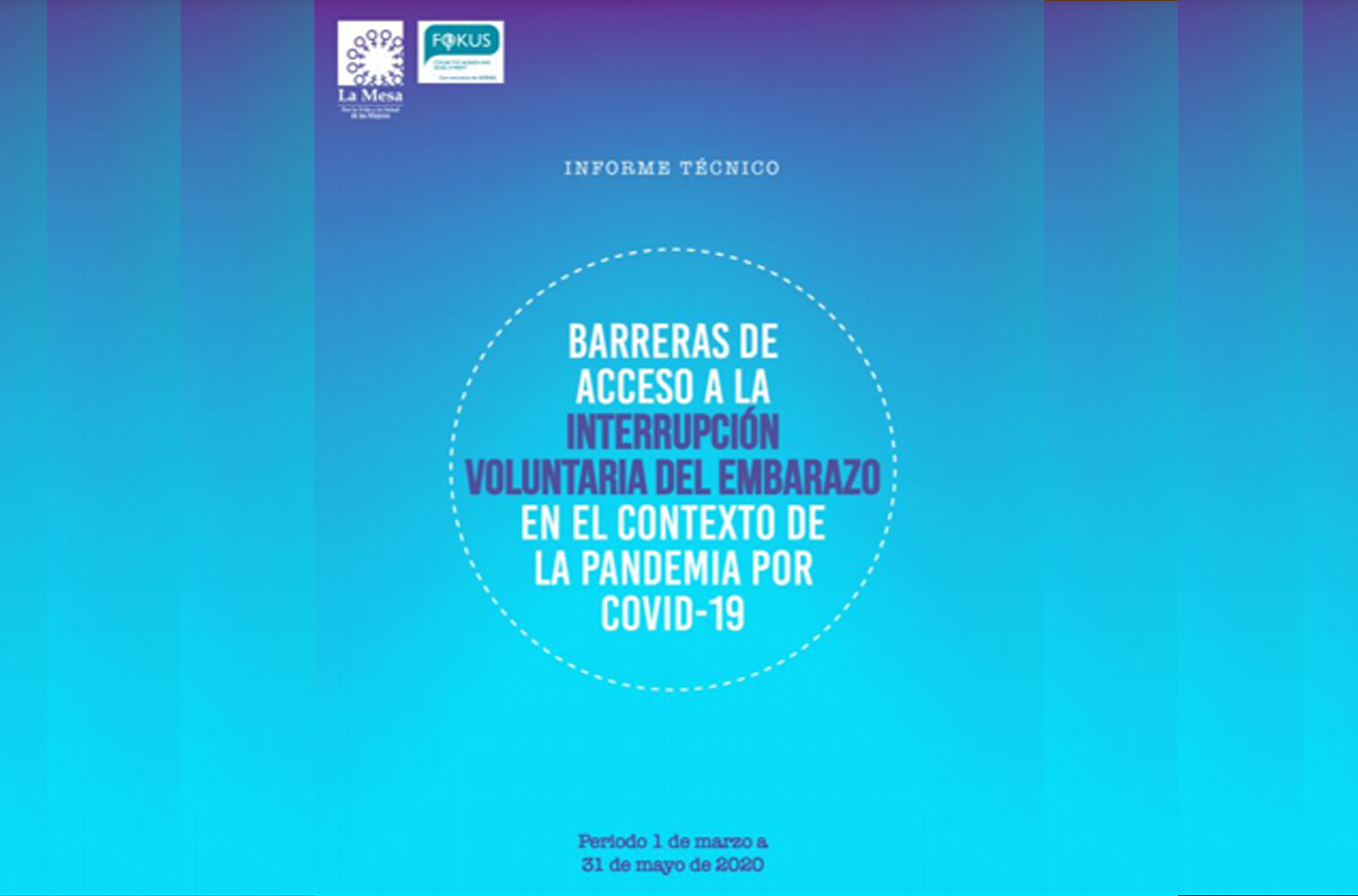
In the current health emergency caused by the Covid-19 pandemic, access barriers to abortion have been accentuated and new ones detected that have affected the health and lives of women, young people and girls, especially those who are most vulnerable. In this report (in Spanish), La Mesa presents an analysis of the most common obstacles currently faced by women who want to access a legal and safe abortion in Colombia. The report is divided into three parts: the first presents the national and international regulations on reproductive rights, including abortion, that have been produced in the context of the current pandemic. The second describes the cases of those who La Mesa has accompanied between 1 March and 31 May 2020. The third is an analysis based on these cases of already existing and new access barriers that have arisen as a result of the pandemic and mandatory lockdown.
Despite entering emergency-mode due to the pandemic, abortion facilities in Colombia remained open as abortion is classified as an essential health service. However, lack of guidelines on how to access abortion facilities and support during the pandemic, alongside pre-existing obstacles, have hindered access to abortion.
In Colombia, abortion was illegal until 2006. The Constitutional Court legalized abortion that year on three grounds: 1) If the life or health of the woman was at risk; 2) if the fetus had a malformation which would make life outside the uterus impossible; or 3) if the pregnancy was a result of rape or incest.
However, women and girls whose situation falls within these categories still face difficulties accessing a legal abortion. When the economic, social and ecological emergency caused by Covid-19 was declared by the Colombian government in March 2020, among the priorities and restrictions in the country’s health services, access to abortion services was considered as an essential health service.
Recent reports from La Mesa por la Vida y la Salud de las Mujeres and the clinic Oriéntame identify many obstacles in accessing abortion services which have arisen or become worse during the pandemic. Their reports show that pre-existing challenges, especially administrative ones, increased. For example, many women and girls were redirected to hospitals or medical centres further from their homes even though their local medical centre was unable to ensure transportation. This made it difficult to attend their appointments.
La Mesa highlights that a key obstacle prior to the pandemic was lack of knowledge of the abortion framework by health personnel and the justice sector, as well as restrictive interpretations of the framework. Consequently, when the pandemic began, when they contacted their local medical centres, women and girls were often informed that it was impossible for them to access the abortion service due to measures to contain the spread of Covid-19.
In addition, requests for appointments were not answered within a short enough period of time because the digital appointments system – which became the main way to obtain an appointment during the pandemic – had never been fully operationalised even though it was introduced into the health sector in 2010. Moreover, many Colombian women and girls do not have access to the internet or have only poor internet connections, which affects\ their access to services, appointments and prescriptions. Furthermore, attending appointments in person became a challenge as public transportation decreased and ticket fares increased. Many women also fear being fined for being in public areas due to lockdown measures.
The pandemic has resulted in increased unemployment and poverty in many countries worldwide, including Colombia. Financial difficulties and increased unemployment, as well as an inadequate amount of information about ways to access health services, were among the other challenges due to the pandemic that had a negative impact on access to abortion services.
Although abortion services remain a priority for the Colombian Ministry of Health and Social Protection, they did not establish new guidelines to adapt access to services to the new environment. Oriéntame, a women’s health clinic, registered 830 fewer requests for abortion support from women and girls in 2020 than in 2019.
Oriéntame began offering a telemedicine service for abortion in April 2020. They report that they provided more financial support for women and girls in need of abortion services in 2020 than in 2019 – 214 in 2020 compared to 141 in 2019. However, the number continuing with the procedure did not increase. Oriéntame think this means that many were unable to cover the rest of the costs.
Thus, the obstacles are often many and complex, making access to legal abortion a far-off reality. Much hope has been placed on the civil society application to the Colombian Constitutional Court to decriminalise abortion in September 2020 by the movement “Causa Justa”, consisting of some 230 organisations and activists, supported by about 100 amicus briefs. The Court agreed to have this discussion some time around May 2021, which sparks optimism for a future where Colombian women and girls can, freely and legally, decide over their own bodies and lives.
FULL REPORT: Barreros de acceso a la IVE en el Contexto de la Pandemia por Covid-19, by La Mesa por la Vida y la Salud de las Mujeres, Colombia, and Fokus, Norway (no date)



